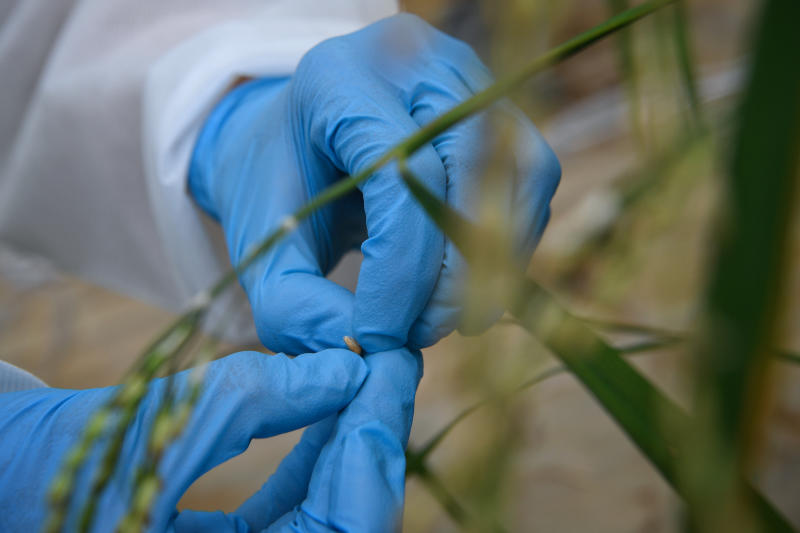Singapore makes progress on home-grown food target
Sign up now: Get ST's newsletters delivered to your inbox

The plan is to use indoor growing technologies and data analytics to optimise production.
PHOTO: ST FILE
SINGAPORE - Singapore's ambition to produce about 30 per cent of its food needs locally has made significant progress despite the disruption from the pandemic.
The "30 by 30" goal to reach that milestone by 2030 was set last year and marks a significant increase, given the country produces less than 10 per cent of its nutritional requirements now.
The plan is to use indoor growing technologies - such as hydroponic and vertical farming - and data analytics to optimise production.
Mr Alvin Tan, Minister of State for Trade and Industry, said Singapore's efforts to boost its agri-food industry has caught attention of both local and foreign investors and innovators.
"There is sustained interest from companies from around the world that are anchoring new agri-food capabilities here," Mr Tan said on Wednesday (Nov 18) at the virtual Asia-Pacific Agri-Food Innovation Summit 2020.
"These investments will affirm our vision and commitment for Singapore to be a leading hub for agri-food tech and innovation."
Mr Tan said the next stage for Singapore's agri-food strategy can be characterised by: advance, accelerate and access.
The Government will support businesses to advance their products and capabilities through research and innovation.
For instance, Singapore-based Sophie's Bionutrients is tapping the Singapore Institute of Food and Biotechnology Innovation's know-how in fermentation and bioprocess engineering and design to develop a sustainable alternative protein with microalgae, which could one day be a part of everyday diet.
The institute was set up last year at the Agency for Science, Technology and Research (A*Star) to drive innovation in novel foods and ingredients, aimed at boosting local production capabilities and satisfying global demand for safer, healthier and more sustainable food.
Another example is the German company &ever, which is setting up a fully automated indoor farm in Singapore that will produce 500 tonnes of fresh produce every year.
&ever will also base its global research and development centre in the Republic and work with A*Star and local academic institutes to explore research collaborations.
Given agri-food is a nascent industry with many new innovations and products, companies need the right environment to start, pilot innovations and explore new areas of collaboration with one another, Mr Tan noted.
The Singapore Food Agency and Enterprise Singapore have launched a guide to help aspiring farmers navigate the guidelines, procedures and regulatory approvals needed to start a land-based farm.
"This will make it easier for those new to the industry to kick-start their businesses," said Mr Tan.
Singapore will ensure free access to its agri-food industry partners to regional and global supply chains, he added.


